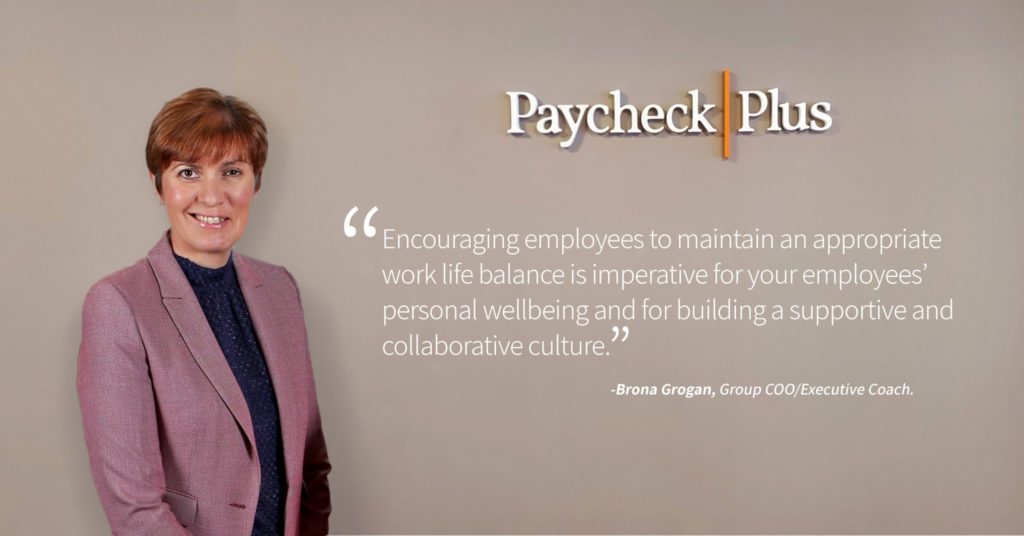National Workplace Wellbeing Day
Introduction
With National Workplace Wellbeing Day upon us, I wanted to briefly write about work-life balance.
Encouraging employees to maintain an appropriate work-life balance is imperative for employees’ personal wellbeing and for building a supportive and collaborative culture, hence the need for National Workplace Wellbeing Day .
The Perils of a Work-life Imbalance
Studies have repeatedly shown that unhealthy work habits and long working hours can lead to a myriad of health issues for employees, including impaired sleep, depression, excessive drinking, diabetes, impaired memory, and heart disease; all of which manifest in the company’s bottom line as absenteeism, employee turnover and reduced productivity.
Even when examined in purely financial terms employees who adopt unhealthy work patterns are less productive. Employees, like so many resources, ultimately follow the law of diminishing marginal returns, and employees who consistently work long hours progressively work less efficiently on tasks that are increasingly irrelevant and inefficient. Time and again studies have shown every hour worked over the standard working week makes employees less effective and productive in both the short and long term.
Evidence of this phenomenon can be traced back as far as the 19th Century, when labour laws first compelled factory owners to reduce working hours and management discovered that output actually increased. But more recent studies have also shown how the same principles equally apply to the service industry where a better work-life balance has been shown to improve communication, spark new processes and enhance teams’ efficiency and effectiveness. In addition to this, individuals with a better work-life balance are more content, and more productive and organisations which advocate work-life balance have lower attrition-rates and are better able to attract and retain top talent.
All of this begs the question; if the benefits are so great and the dangers so perilous, why do issues with work-life balance persist?
The easy answer is to say that the need to work long hours and forego recreational time cascades down from the upper echelons of the organisation, with employees working longer hours simply because their superiors demand it of them. And while there is some evidence to support this, it does not wholly account for the rising trend of people working excessively.
For instance, if overworking was purely management driven you would expect to see a strong negative relationship between long work hours and job satisfaction or contentment and this has not always been the case. Similarly, you would expect to see low rates of overworking in autonomous teams, or from self-employed people, but again this is not the case.
Many who overwork do so on account of innate psychological reasons. They are more likely to be motivated by their own ambition, machismo, greed and insecurities than they are by the demands of managers. And so, while demonising management and the workplace makes for a compelling narrative, the truth may be the exact opposite, with the workplace servicing as a safe haven per se from domestic stress and providing an environment where employees can feel confident and in control.
Improving Employees’ Work-Life Balance
So, what can be done to improve employees’ work-life balance?
In short there is no magic formula. Maintaining employee wellbeing is an idiosyncratic and long-term goal, not a quick fix. But there are some practices that every manager can consider:
- Lead by example – ensure that managers and the senior leadership team enjoy a healthy work-life balance. Be sure to leave the office on time, take breaks and avoid emailing workers out of office hours.
- Acknowledge that every employee is different – People are not homogenous. So, managers should not expect to manage everyone in the same way. Take the time to understand colleagues and how to motivate them.
- Encourage employees to focus on productivity – Employers should encourage workers to prioritise their workloads and focus on the most important tasks. Managers should also check in routinely to ensure workers have achievable workloads.
- Encourage breaks and time off – Whether it is urging employees to step away from the desk or to take holidays or compassionate leave. Encouraging people to take time off when they need it shows empathy, builds loyalty and generally improves productivity.
- Ask for feedback – Too often managers feel the need to have all the answers and resolve problems before understanding them. Fostering open communication and asking your employees for their views can provide unique insights on how to create a better work-life balance that works for them.
Related Articles:
Supporting Your Payroll Processing Team During Lockdown
Paycheck Plus, a Great Place to Work!
Paycheck Plus, Your Irish Payroll Processing Team
Paycheck Plus is an award-winning Irish payroll bureau, serving businesses across Ireland and the UK. With industry-leading accuracy levels, strict levels of confidentiality and top-rated payroll processes, we provide comprehensive, ISO and ISAE 3402 accredited, payroll outsourcing services to organisations of all sizes.
Our highly experienced payroll processing experts can help you to navigate all aspects of local taxation and to meet your legal requirements, including payroll consultancy, payroll audits, payroll reporting, payroll training, company set-up and wind-down, and special projects.
To ensure payroll accuracy or for more information simply request a callback now or call our Irish payroll bureau on +353 (0) 1 905 9400
For UK Payroll Processing please contact our Manchester Payroll Service on +44 (0) 161 464 8720

